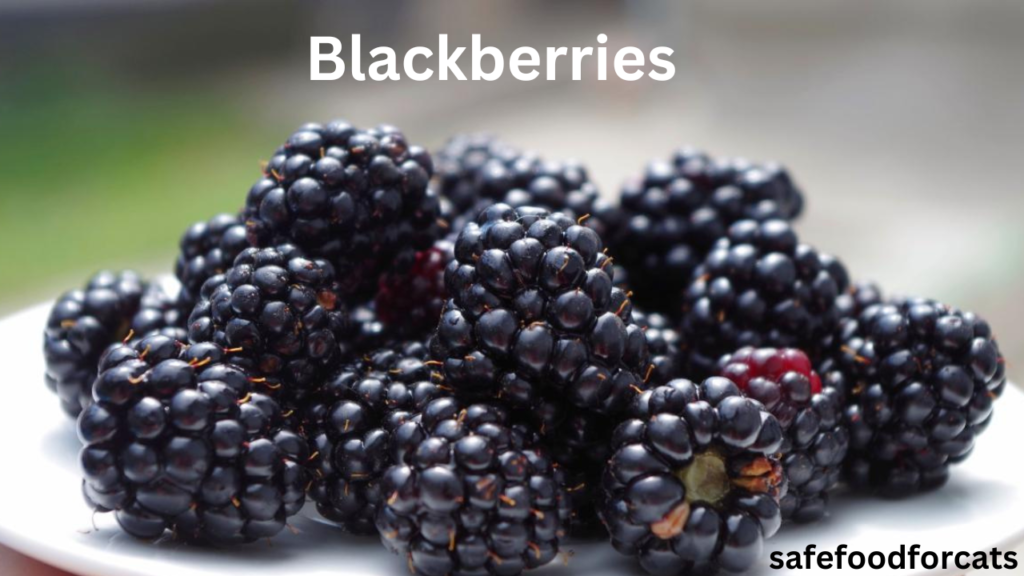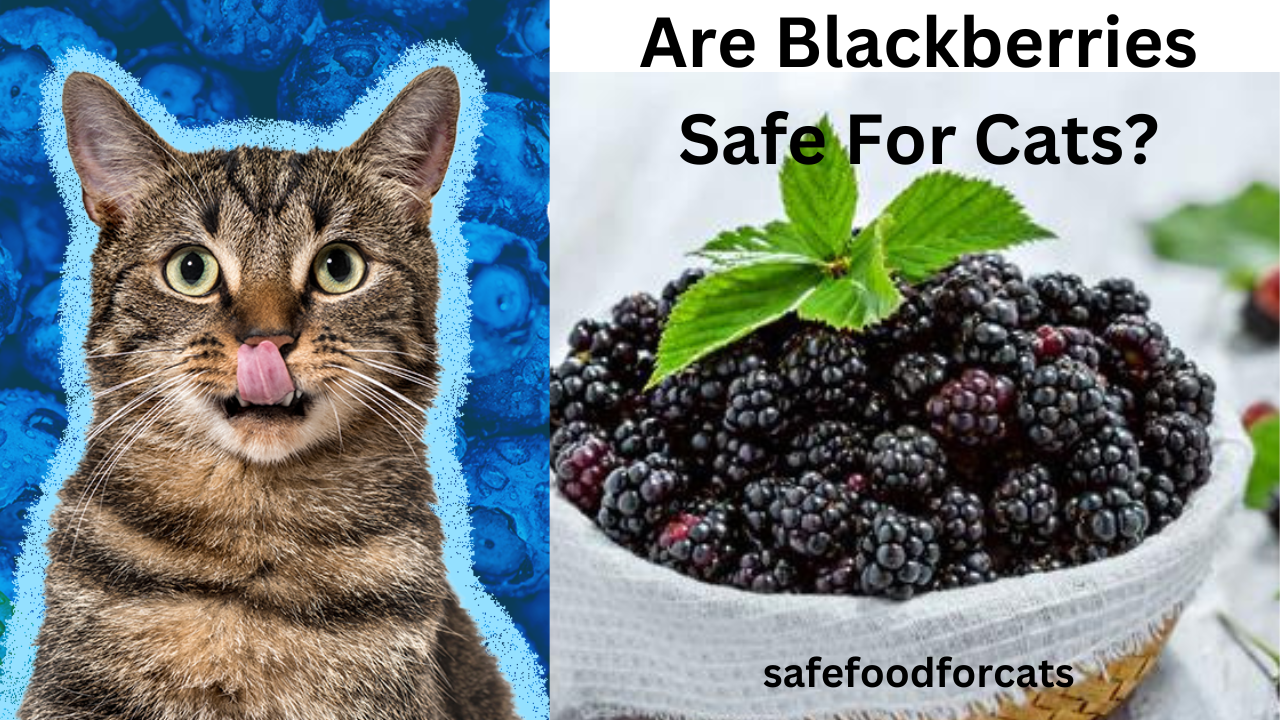Blackberries, those delightful and nutritious fruits enjoyed by many humans, often lead pet owners to wonder whether they are safe for their feline companions as well. As responsible cat owners, it is essential to consider their dietary needs and overall health before introducing any new food into their diet. While cats are obligate carnivores, primarily relying on meat for nutrition, some fruits can be offered as occasional treats in moderation.
So, are blackberries safe for cats?
The good news is that blackberries are generally safe for cats when given in small amounts as an occasional treat. Blackberries are nutritious fruits that contain essential nutrients like vitamins C and K, as well as antioxidants, which can promote overall health. However, it’s crucial to remember that cats have specific dietary needs. As obligate carnivores, their digestive systems are designed to primarily process and derive nutrition from animal-based protein sources.
While offering small amounts of blackberries as an occasional treat can be safe and even provide some health benefits, it should not replace their regular balanced diet of high-quality cat food that meets their carnivorous needs. Cats require nutrients like taurine, arachidonic acid, and certain vitamins, which are primarily found in animal tissues like meat and organs.
Benefits of Blackberries for Cats
Blackberries, like blueberries and other berries, are packed with antioxidants that can help neutralize free radicals in the body, potentially reducing the risk of certain diseases and supporting a healthy immune system. The vitamins and minerals present in blackberries can contribute to your cat’s overall well-being. While blackberries are a safe and nutritious treat option, they should not replace a balanced and appropriate feline diet.

Feeding Blackberries to Your Cat
If you decide to share a few blackberries with your cat, it is essential to do so in a safe manner. Here are some tips for feeding blackberries to your feline friend:
- Offer Small Amounts: Treats should only make up a small portion of your cat’s diet. Offer a few pieces of blackberries occasionally and not as a regular meal replacement. Variety is essential in a cat’s diet, so consider rotating treats to ensure they receive a balanced array of nutrients.
- Wash Thoroughly: Before offering blackberries to your cat, rinse them thoroughly to remove any pesticides or chemicals that might be present on the fruit’s surface.
- Cut into Small Pieces: Blackberries have small seeds that could pose a choking hazard for cats. To reduce the risk, cut the blackberries into small, manageable pieces before offering them to your furry friend.
- Monitor for Reactions: After giving your cat a few Blackberry pieces, observe for any adverse reactions. While blackberries are generally safe for cats, it is important to be aware that some cats may have sensitivities or allergies to certain fruits, including blackberries. If you notice any signs of digestive upset, such as vomiting or diarrhea, or if your cat experiences skin irritation or allergic reactions after consuming blackberries, it is best to discontinue offering them as treats.
Potential Risks and Concerns
While blackberries are generally safe for cats, there are a few considerations to keep in mind:
- While offering small amounts of blackberries as an occasional treat can be safe and even provide some health benefits, it should not replace their regular balanced diet of high-quality cat food that meets their carnivorous needs. Cats require nutrients like taurine, arachidonic acid, and certain vitamins, which are primarily found in animal tissues like meat and organs.
- Allergies: As with any new food, your cat may have an allergic reaction to blackberries. It is essential to watch for signs of any adverse reactions in your feline friend after offering blackberries or any new food. If you suspect an allergy, avoid giving blackberries and consult with your veterinarian for guidance.
- Digestive Upset: Cats’ digestive systems are sensitive, and consuming large amounts of fruits can lead to digestive upset. Limit the quantity of blackberries to a few pieces, and do not allow your cat to overindulge.
- Sugar Content: Blackberries, like all fruits, contain natural sugars. While a few pieces are unlikely to cause harm, excessive sugar intake is not recommended for cats. High sugar intake can lead to weight gain and potential health issues, so it’s crucial to moderate treat consumption.
Conclusion
In conclusion, blackberries can be offered as an occasional treat for cats, provided they are fresh, washed, and cut into small pieces to minimize the risk of choking. While blackberries offer some nutritional benefits, they should not replace a balanced feline diet that primarily consists of animal-based proteins.
As with any dietary change or introduction of new foods, it is always best to consult with a veterinarian. They can provide personalized advice based on your cat’s individual health needs and dietary preferences. By offering blackberries in moderation and being attentive to your cat’s reactions, you can safely share a tasty and nutritious treat with your feline companion. Remember, the key to a happy and healthy cat is a balanced and appropriate diet that meets its specific nutritional requirements. Your furry friend will surely appreciate the occasional sweet delight of a Blackberry treat!

